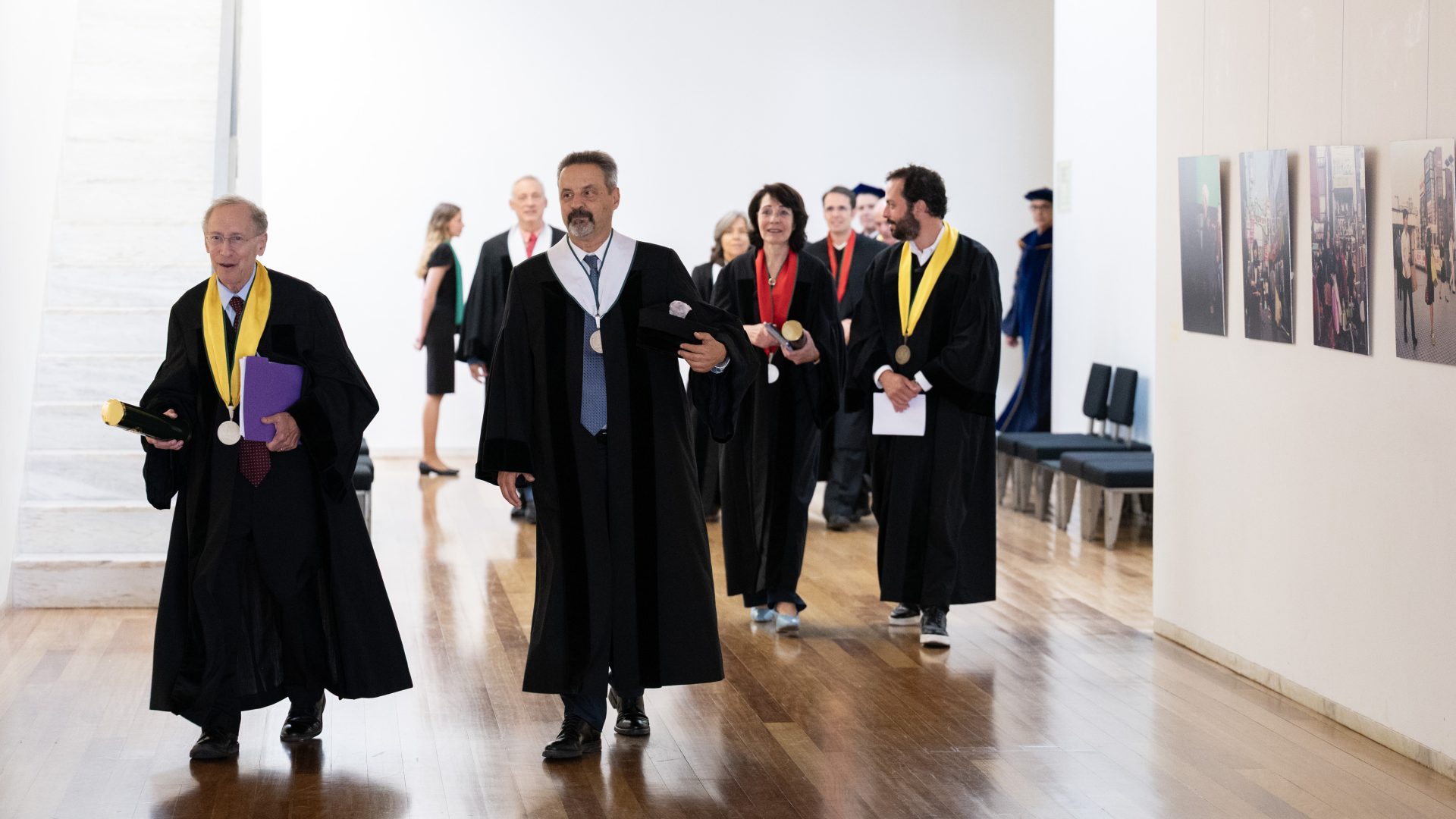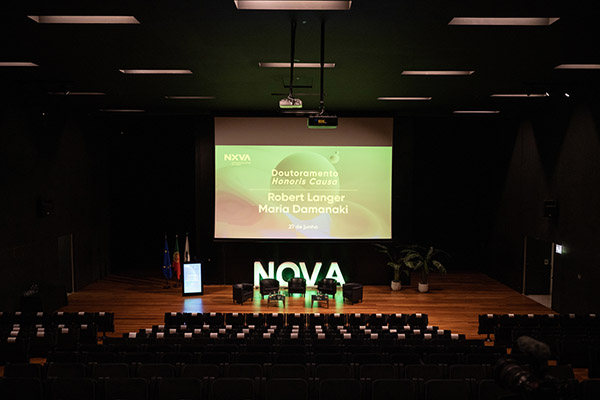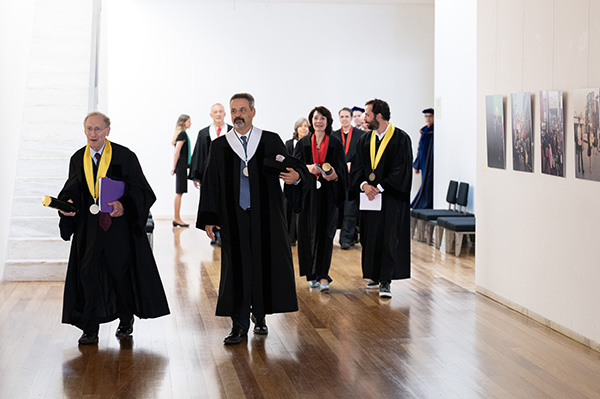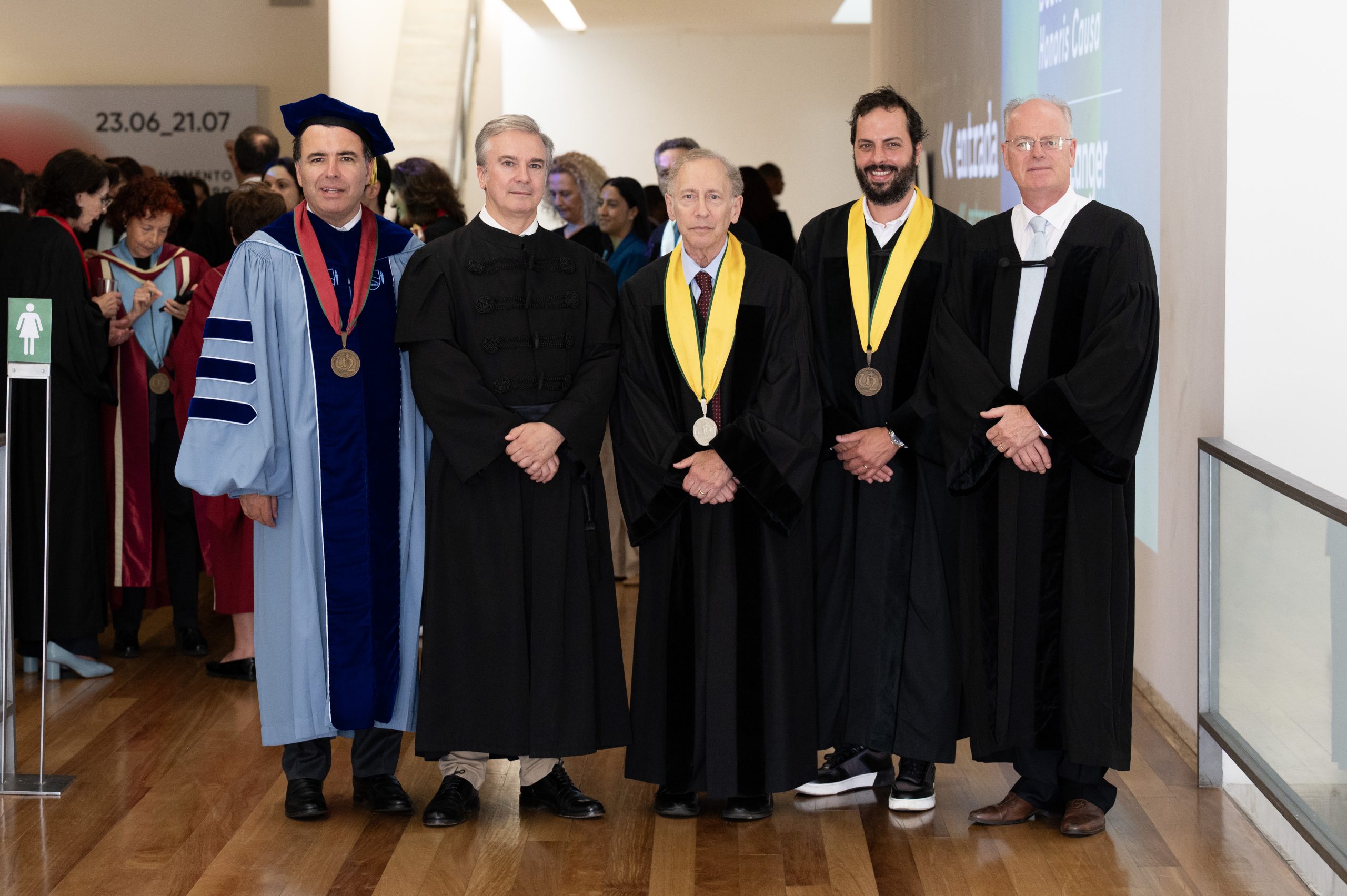Last Friday, 27th January, the Rector’s auditorium at NOVA University Lisbon hosted a ceremony to welcome two important figures in science and world politics to our community.
“Few have contributed to health and to expanding the frontiers of knowledge in this way. Their vision and dedication exemplify the best of science for the benefit of humanity,’ said NOVA’s Rector João Sáágua, speaking about the career of the distinguished MIT scientist, Robert Langer. He added: “Maria Damanaki is a woman with an extraordinary vision, on the front line against a dictatorship, opening space for women’s careers, with a life full of achievements and values that represent the best of humanity.”
Laudatory speeches were given, followed by the presentation of the medal to each of the laureates.
‘The impact of his work makes him an Edison of medicine,’ said Pedro Oliveira, Director of the Nova School of Business and Economics, regarding Langer. He recalled that Langer had helped save millions of people around the world, even just considering his contribution to the mRNA vaccine against Covid-19 during the pandemic. ‘A hero who broke down the walls between industry and academia,’ he concluded.
‘To say he is a pioneer is an understatement,’ added João Conde, vice director of research at NOVA Medical School, recalling the privilege of having collaborated with Langer at MIT. ‘Above all, Langer changed the way we do science: simply, humbly, and never giving up. Furthermore, he is guided by the conviction that science should serve people. Let there be no doubt: this is the hero we want to follow.’
Even at the age of 76 and with an impressive CV, Robert S. Langer always smiled as he expressed his gratitude, emphasising above all what had kept him going: ‘Failure is okay. Remember that any great entrepreneur of our time failed before achieving success.” He also said that “you should work hard because you want to – if we realise how much this can change the world, then we will work even harder”.
Assunção Cristas, vice-president of the Faculty Council of NOVA School of Law, then took to the stage to praise Maria Damanaki. ‘She is more than Greek; she is a citizen of the world who has never been indifferent to the circumstances faced by women’, he said, also recalling how the former European Commissioner for the Environment, Oceans and Fisheries had entered politics at an early stage in her life. ‘One of her greatest contributions was the restoration of much of the marine life, which allowed for the creation of thousands of jobs in this area,’ Assunção Cristas highlighted, adding that her career is an inspiration to us all. ‘Protecting the ocean is not only possible, but essential for the future of humanity.’
Maria Damanaki made a point of explaining this, after remembering that she was born next to the sea and almost drowned at the age of three: ‘I always wanted to know what was beyond that immense blue’. As for her life as a politician, she acknowledged that it was not easy, even for someone like her who is a convinced Europeanist. In the end, she made a point of remembering Pessoa: ‘To be great, be whole.’






































